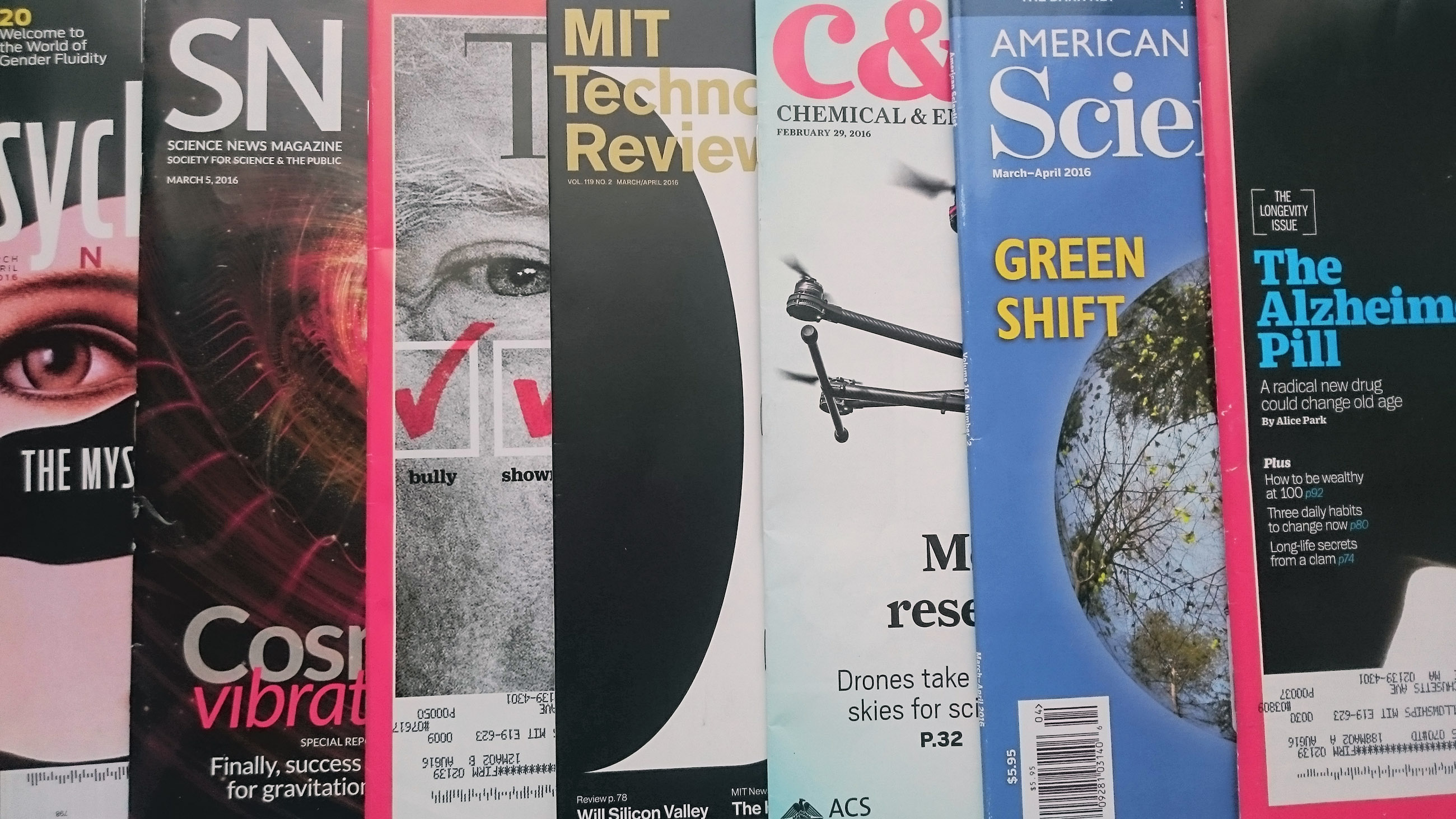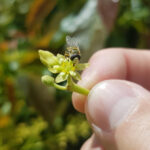NASW Has Changed. Its Leadership Policy Should Too.
When we meet for our annual conference in San Antonio this weekend, members of the National Association of Science Writers, a decades-old professional organization, will confront a fundamental question: Are we, in fact, a national association of science writers, as our name and diverse membership imply, or are we a national association of science journalists, as many among our ranks so adamantly suggest?

Currently, all members partake in the same privileges and responsibilities within the organization, and since the membership voted overwhelmingly to amend the constitution in 1998, we are all full voting members. There is no longer one membership category for “journalists,” and another “associate” category for everyone else, as had been the case since NASW’s founding in 1934. Today, all of our members pay the same dues and can participate fully in all NASW activities, from mentoring young science writers to chairing committees on professional practice to proposing development and training workshops — even serving on the governing board of the organization.
But there’s one glaring exception.
Only bona fide journalists may serve as officers (that is, president, vice president, secretary or treasurer) within NASW. That excludes quite a large number of dues-paying members, including communications professionals and public information officers (or PIOs) of various kinds, who write on behalf of universities, research institutes, or like me, government agencies. An amendment now before NASW’s membership, which will be voted on this Saturday, would do away with that distinction among members and allow anyone in good standing to run for office.

COUNTERPOINT: Undark’s Tracker columnist and NASW board member Seth Mnookin explains why he believes the National Association of Science Writers is — and must remain — an organization led by journalists and not public information officers.
This amendment would eliminate the last vestige of a caste system that has systematically excluded all PIOs as a class, along with many of our members who freelance in addition to their other roles. And I was proud to mount the successful petition drive to bring this matter to the membership’s attention. I believe it is well overdue to resolve an issue that NASW leadership has ignored in hopes of preserving a fragile détente between our journalists and our members who write (or also write) for non-journalism outlets, rather than addressing this ever more anachronistic remnant of separate-but-equal governance.
Frankly, it should have been done when we voted down separate member categories in 1998, and changes in the landscape of science writing since then have only proved the fundamental prescience of that vote. The community today recognizes that we all have a shared stake in creating and promoting excellent science writing, and that to survive in this changed world, many science writers — including many excellent former journalists — need to avail themselves of support not just from journalism but from a variety of sources of income. Staff writers for journalism outlets in 2016 comprise the smallest of our membership categories, outnumbered by both PIOs and freelance writers.
Let’s be clear here: No one disputes for a second the fitness of any of our current officers. Nor does this amendment proposal signal that any of us is so naïve as to think that all science writing is automatically journalism.
But it does beg the question of why journalists, and journalists alone, are considered best able to govern an organization in which a shrinking minority identify as journalists. This hurts NASW no matter how good the leadership, because many of the best, brightest, and hardest working members of our organization can never be accorded the professional honor of serving as an officer. This hurts us, personally and professionally.
Good colleagues and friends have advised me that we should just let it go and allow the increasing decline of legacy journalism take care for us by default what a constitutional amendment will do by deliberation — and they may well be right. But watchful waiting for a someday solution to an intolerable situation is not, I am happy to say, in NASW’s DNA. Were there a gender, racial, or ethnic basis for this barrier to holding office, NASW would never tolerate it — and I say that with no reservation at all, owing to principled and ethical leadership on these issues in the past.
For some members and officers, opposition to the amendment reflects a more general concern that journalism is under threat financially and philosophically in America today. They want to view NASW as a bulwark against this tide — and NASW can be. But we also are fortunate in having excellent professional journalism organizations that exist for the purpose of supporting journalism, journalists, and the fight for journalistic freedom. Many of our journalist members belong to these organizations as well, as do many of our freelancers. In my opinion, issues about the larger field of journalism are properly addressed by groups of professional journalists. The Society of Professional Journalists is one example.
There are also professional public relations organizations that exist for the purpose of supporting PIOs and like-minded professionals. Many of our PIO members belong to these organizations as well, as do many of our freelancers. Again, in my opinion, issues regarding the wider field of public communications are properly addressed by groups geared toward public communications professionals. The Public Relations Society of America comes to mind, as does the Council for the Advancement and Support of Education.
Compared with NASW’s 2,000-some members, the Society of Professional Journalists has nearly 8,000. The Public Relations Society of America has 28,000. I think they have their respective professions covered. By contrast, neither science journalists, nor science freelancers, nor science PIOs have a professional organization that cultivates their professional development as science writers.
That precisely why we need NASW, and why it needs to be an inclusive organization.
Our common ground ought not be determined by who signs our paycheck — we have let this divide us for far too long. We are united by science writing — good, compelling, accurate science writing. And there is plenty to do to cultivate and nurture science writing that can be productively addressed by a professional organization whose members are able to put aside their hats as journalists, freelancers, PIOs, educators, or authors, and come together to focus on the challenges of science communication.
No organization can hope to thrive in the 21st century by catering to the demands of a privileged class while ignoring the excellent work, and potential leadership, of hundreds of its members — all of them talented writers, authors, and storytellers.
NASW needs to embrace and cultivate its diversity, not marginalize it.
Rick Borchelt is director of communications and public affairs at the U.S. Department of Energy’s Office of Science. He is a past NASW board member, and a past president of the D.C. Science Writers Association.










